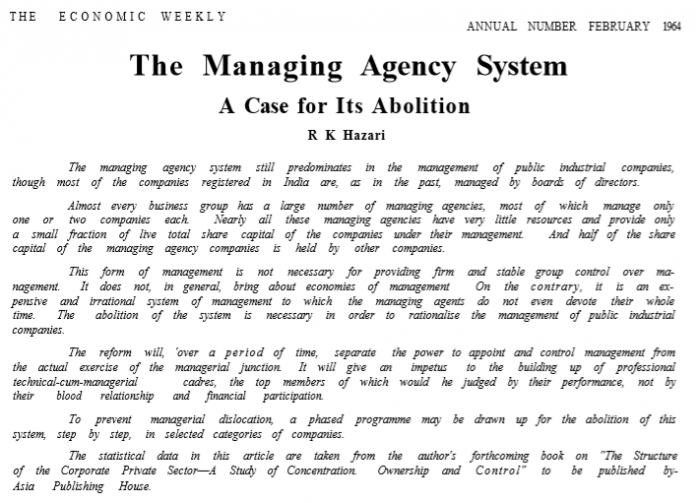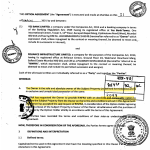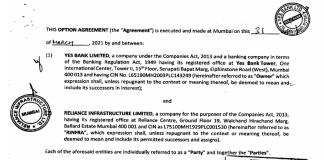The Managing Agency System A Case for Its Abolition
The managing agency system still predominates in the management of public industrial companies, though most of the companies registered in India are, as in the past, managed by boards of directors. Almost every business group has a large number of managing agencies, most of which manage only one or two companies each. Nearly all these managing agencies have very little resources and provide only a small fraction of live total share capital of the companies under their management. And half of the share capital of the managing agency companies is held by other companies. This form of management is not necessary for providing firm and stable group control over management. It does not, in general, bring about economies of management On the contrary, it is an expensive and irrational system of management to which the managing agents do not even devote their whole time. The abolition of the system is necessary in order to rationalise the management of public industrial companies. The reform will, 'over a period of time, separate the power to appoint and control management from the actual exercise of the managerial junction. It will give an impetus to the building up of professional technical-cum-managerial cadres, the top members of which would he judged by their performance, not by their blood relationship and financial participation. To prevent managerial dislocation, a phased programme may be drawn up for the abolition of this system, step by step, in selected categories of companies. The statistical data in this article are taken from the author's forthcoming book on "The Structure of the Corporate Private Sector—A Study of Concentration. Ownership and Control " to be published byAsia Publishing House.














